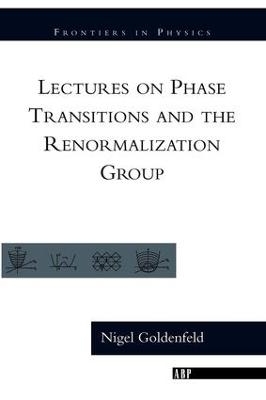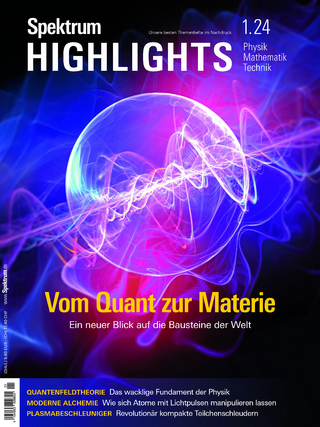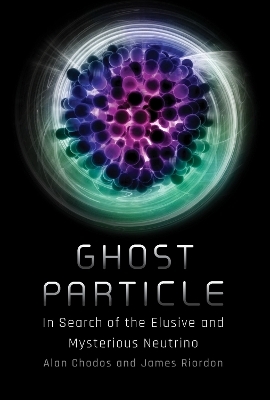
Lectures On Phase Transitions And The Renormalization Group
Westview Press Inc (Verlag)
978-0-201-55409-0 (ISBN)
Covering the elementary aspects of the physics of phases transitions and the renormalization group, this popular book is widely used both for core graduate statistical mechanics courses as well as for more specialized courses. Emphasizing understanding and clarity rather than technical manipulation, these lectures de-mystify the subject and show precisely "how things work." Goldenfeld keeps in mind a reader who wants to understand why things are done, what the results are, and what in principle can go wrong. The book reaches both experimentalists and theorists, students and even active researchers, and assumes only a prior knowledge of statistical mechanics at the introductory graduate level.Advanced, never-before-printed topics on the applications of renormalization group far from equilibrium and to partial differential equations add to the uniqueness of this book.
Nigel Goldenfeld is Professor of Physics at the University of Illinois at Urbana-Champaign. He received his Ph.D. from the University of Cambridge (U.K.) in 1982, and for the years 1982-1985 was a postdoctoral fellow at the Institute for Theoretical Physics, University of California at Santa Barbara. He is a University Scholar of the University of Illinois, a Fellow of the American Physical Society, a recipient of the Xerox Award for research, a member of the Editorial Board of the International Journal of Theoretical and Applied Finance, and was an Alfred P. Sloan Foundation Fellow from 1987-1991. David Pines is research professor of physics at the University of Illinois at Urbana-Champaign. He has made pioneering contributions to an understanding of many-body problems in condensed matter and nuclear physics, and to theoretical astrophysics. editor of Perseus' Frontiers in Physics series and former editor of American Physical Society's Reviews of Modern Physics, Dr. Pines is a member of the National Academy of Sciences, the American Philosophical Society, a foreign member of the USSR Academy of Sciences, a fellow of the American Academy of Arts and Sciences, and of the American Association for the Advancement of Science. Dr. Pines has received a number of awards, including the Eugene Feenberg Memorial Medal for Contributions to Many-Body Theory the P.A.M. Dirac Silver Medal for the Advancement of Theoretical Physics and the Friemann Prize in Condensed Matter Physics.
Introduction * Scaling and Dimensional Analysis * Power Laws in Statistical Physics * Some Important Questions * Historical Development * Exercises How Phase Transitions Occur In Principle * Review of Statistical Mechanics * The Thermodynamic Limit * Phase Boundaries and Phase Transitions * The Role of Models * The Ising Model * Analytic Properties of the Ising Model * Symmetry Properties of the Ising Model * Existence of Phase Transitions * Spontaneous Symmetry Breaking * Ergodicity Breaking * Fluids * Lattice Gases * Equivalence in Statistical Mechanics * Miscellaneous Remarks * Exercises How Phase Transitions Occur In Practice * Ad Hoc Solution Methods * The Transfer Matrix * Phase Transitions * Thermodynamic Properties * Spatial Correlations * Low Temperature Expansion * Mean Field Theory * Exercises Critical Phenomena in Fluids * Thermodynamics * Two-Phase Coexistence * Vicinity of the Critical Point * Van der Waals Equation * Spatial Correlations * Measurement of Critical Exponents * Exercises Landau Theory * Order Parameters * Common Features of Mean Field Theories * Phenomenological Landau Theory * Continuous Phase Transitions * Inhomogeneous Systems * Correlation Functions * Exercises Fluctuations and the Breakdown of Landau Theory * Breakdown of Microscopic Landau Theory * Breakdown of Phenomenological Landau Theory * The Gaussian Approximation * Critical Exponents * Exercises Scaling in Static, Dynamic and Non-Equilibrium Phenomena * The Static-Scaling Hypothesis * Other Forms of the Scaling Hypothesis * Dynamic Critical Phenomena * Scaling in the Approach to Equilibrium * Summary The Renormalisation Group * Block Spins * Basic Ideas of the Renormalisation Group * Fixed Points * Origin of Scaling * RG in Differential Form * RG for the Two Dimensional Ising Model * First Order Transitions and Non-Critical Properties * RG for the Correlation Function * Crossover Phenomena * Correlations to Scaling * Finite Size Scaling Anomalous Dimensions Far From Equilibrium * Introduction * Similarity Solutions * Anomalous Dimensions in Similarity Solutions * Renormalisation * Perturbation Theory for Barenblatts Equation * Fixed Points * Conclusion Continuous Symmetry * Correlation in the Ordered Phase * Kosterlitz-Thouless Transition Critical Phenomena Near Four Dimensions * Basic Idea of the Epsilon Expansion * RG for the Gaussian Model * RG Beyond the Gaussian Approximation * Feyman Diagrams * The RG Recursion Relations * Conclusion
| Erscheint lt. Verlag | 21.7.1992 |
|---|---|
| Sprache | englisch |
| Maße | 152 x 229 mm |
| Gewicht | 600 g |
| Themenwelt | Naturwissenschaften ► Physik / Astronomie ► Hochenergiephysik / Teilchenphysik |
| Naturwissenschaften ► Physik / Astronomie ► Thermodynamik | |
| ISBN-10 | 0-201-55409-7 / 0201554097 |
| ISBN-13 | 978-0-201-55409-0 / 9780201554090 |
| Zustand | Neuware |
| Informationen gemäß Produktsicherheitsverordnung (GPSR) | |
| Haben Sie eine Frage zum Produkt? |
aus dem Bereich


